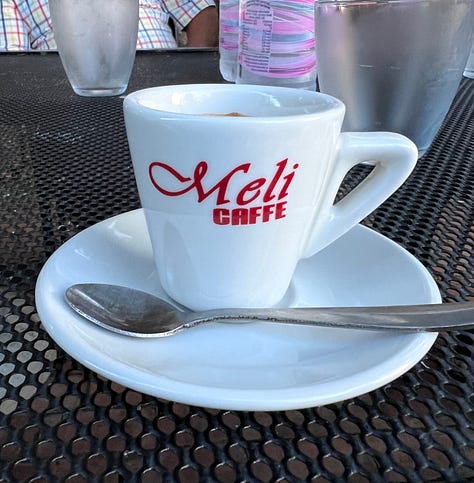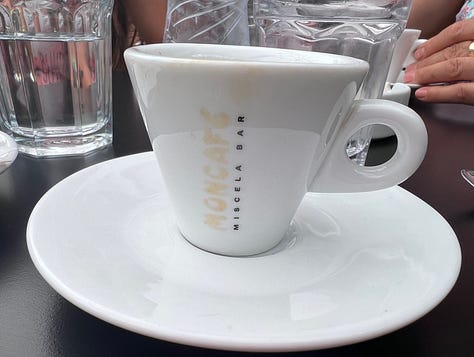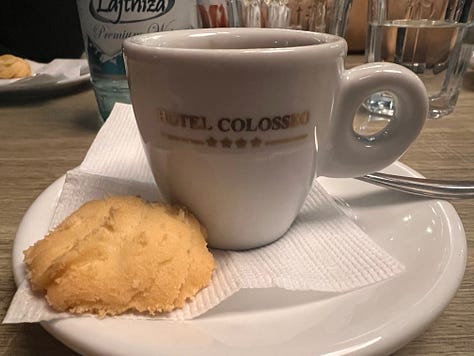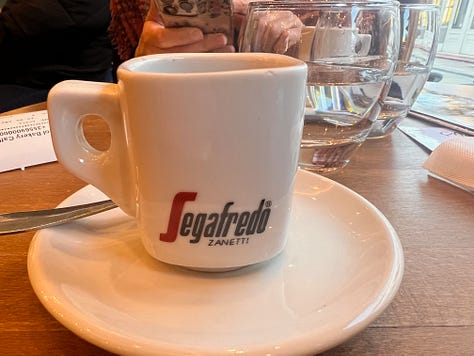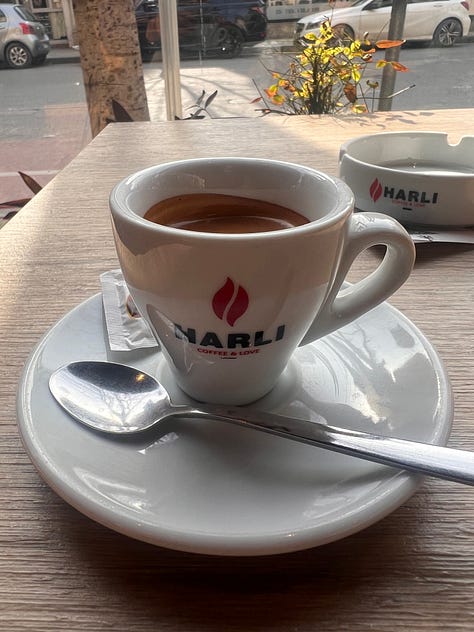The only things more numerous than concrete bunkers in Albania are cafes. Albania consistently ranks near the top of the list of coffee shops per capita each year, sharing spots with Spain, Greece, and Portugal. In 2023 Albania had 547 bars or restaurants per 100,000 inhabitants. Cafes are everywhere - in the cities, in the countryside, up in the mountains and on the beaches. There are easily ten within a five minute walk of our apartment in Tirana. Cafes are where friends meet, business is done, and kids play as their parents sip coffee. It is the Albanian version of the British pub.
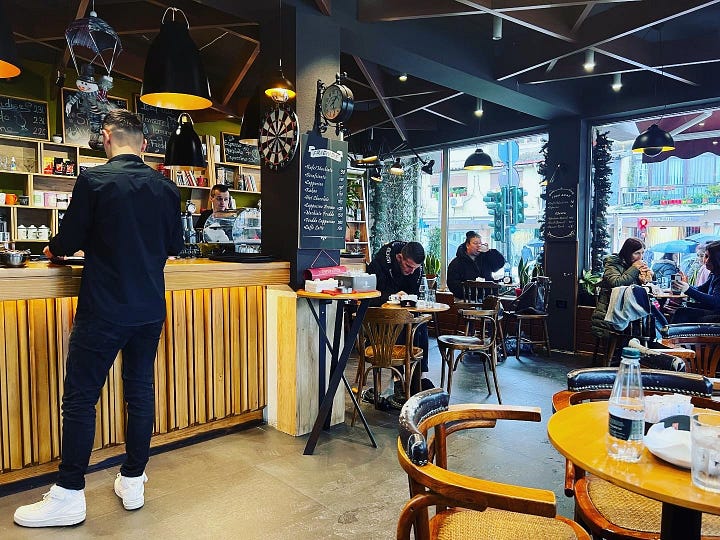
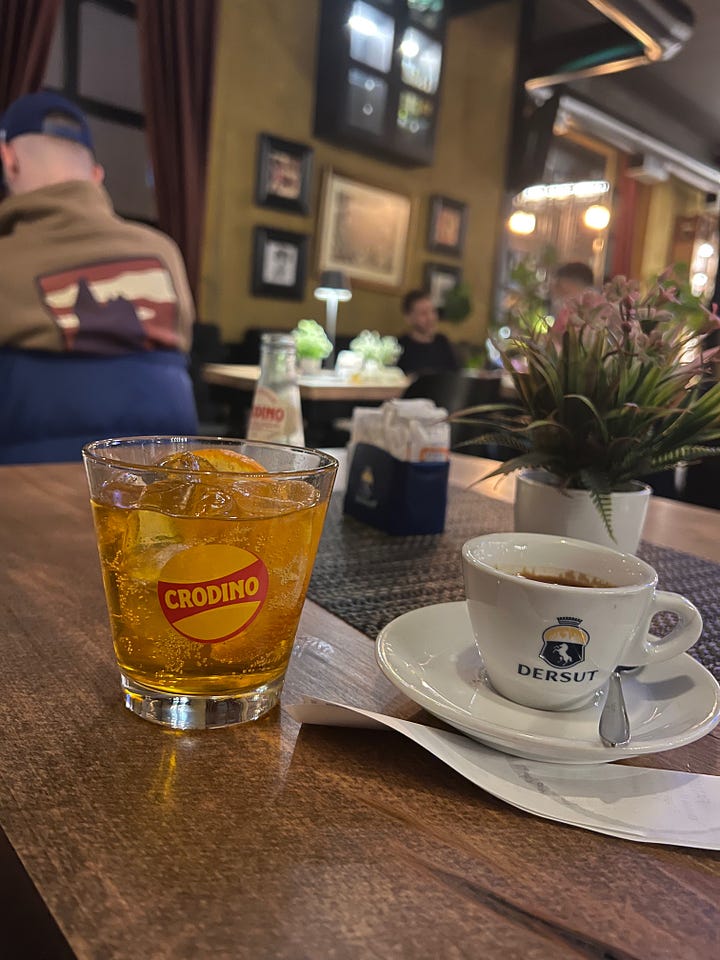
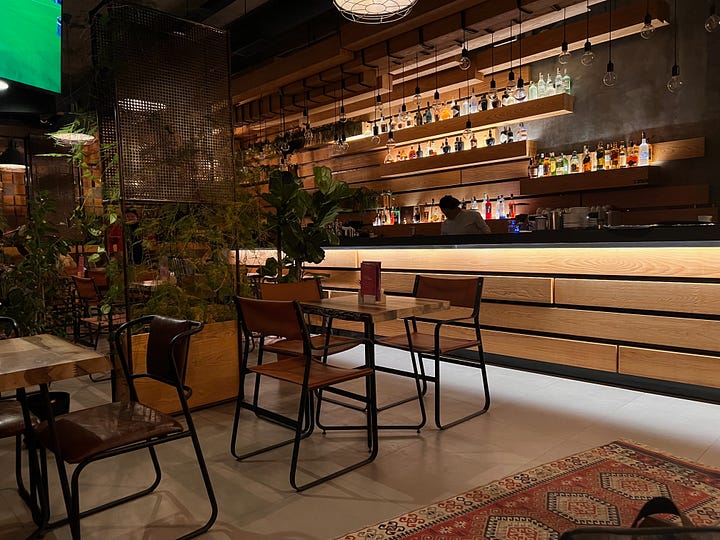

It is hard to describe how integral cafes are to Albanian culture, but a description of how we spent this past Sunday may help. My partner and I woke up and had coffee (Turkish) at home before we meditated. After meditating we took a short walk to our usual spot (Oda Lounge and Bar) for our first espresso of the day. I read while Mirela wrote a new post for her own substack. We went back home for lunch and then a few hours later drove to meet her family (mom, dad, sister, and nephew) for a coffee at their usual spot, and outdoor cafe near a lake. Later that evening Mirela went to Oda again to catch up with a friend.
Why this love affair with coffee and cafes? Part of it is historical. Albania was part of the Ottoman empire for over 400 years and adopted the Turkish coffee culture. Wadham Peakcock, who was the private secretary to the British Consul General in Shkodra from 1878 to 1880, mentions coffee 47 times in his book “Albania: The Foundling State of Europe” including a complaint about how long it took to get from the port to the Consulate on his arrival to Albania because they stopped twice for coffee “it being clearly the opinion of the escort, both officers and men, that it is wise to drink coffee when and where you can, as you never can tell when you will get it again”
In addition to the historical Turkish influence, Albania is also affected by its proximity to Italy. The coastal cities of Vlora and Shkodra are heavily influenced by Italian culture, and Italian TV was the only western culture Albanians were exposed to during communist times. Hence “espresso” is the definition of “a coffee” in Albania
Lastly is economics. The average Albanian earns about $500 a month. Social activities like restaurants or the cinema are too expensive for most, but a cup of coffee costs from between 50 cents to $1.20 depending on the cafe. You can spend a few hours meeting and talking to friends without spending much money. It is comforting having one or more regular cafes. The waiters see us as we enter and bring us our coffees without us ordering. We sit and observe the people around us, someone alone on their phone (probably waiting for a friend), groups of two or more friends discussing in Albanian, children running and playing, the neighborhood dog joining us for some cuddles, whole families, strollers next to their table, and sometimes a family member in a wheelchair. There is a sense of community, people are spending time together and connecting away from their devices.
As Fred Abrahams said in “Modern Albania” about his time here “To find a person I never went to an office but to the café where he or she was known to sit. ‘Ku pi kafe’”—“Where does he drink coffee?”—I learned to ask.”
